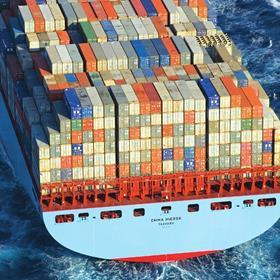
The growth of Latin American exports depends more on lower transport costs than on the reduction of tariffs, according to research unveiled as part of a new study dubbed ‘Unclogging the Arteries: A Report on the Impact of Transport Costs on Latin American and Caribbean Trade’.
Commissioned by the Inter-American Development Bank (IDB), the report, which will be presented tomorrow (Wednesday 1 October) at the Brazilian seminar ‘Transport for Trade and Regional Integration’, includes figures for nine Latin American countries, including Argentina, Bolivia, Brazil, Chile, Colombia, Ecuador, Peru, Paraguay and Uruguay.
The study claims Latin American exports could rise by over 20 per cent if freight costs were reduced by just 10 per cent, whereas the same reduction in tariffs would prompt trade growth of just 10 per cent.
In terms of markets, a 10 per cent cut in transport costs would also translate into a 39 per cent rise in foreign sales to the US.
According to IDB economist Mauricio Mesquita Moreira, one of the authors of the research, Latin American governments are more concerned with tariff and non-tariff barriers rather than more pressing obstacles, such as transport.
“The trade policy in the region is out of focus,” explained Mr Moreira. “Latin America spends 7 per cent of its export value on freight, almost double the 3.7 per cent spent by the US.”
Transport costs in Latin American are almost double that of the US, according to the study, with Argentina spending 22 per cent more than North America, Chile twice, and Paraguay, over four times.
The report also shows that around 30 per cent of the transport costs in Latin America are due to port inefficiency, caused by limited competition within the sector.
In order to improve the situation, the IDB has suggested incorporating a transport agenda within trade talks.
“This does not have to simply involve infrastructure, but also sector regulation,” Mr Moreira said. “It is vital to create a regulatory environment in order to stimulate competition and explore economies of scale.”



